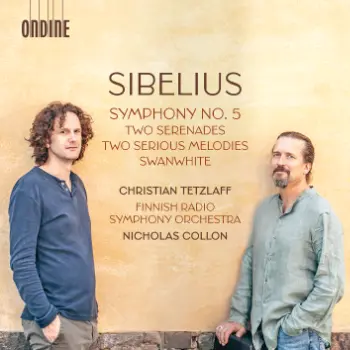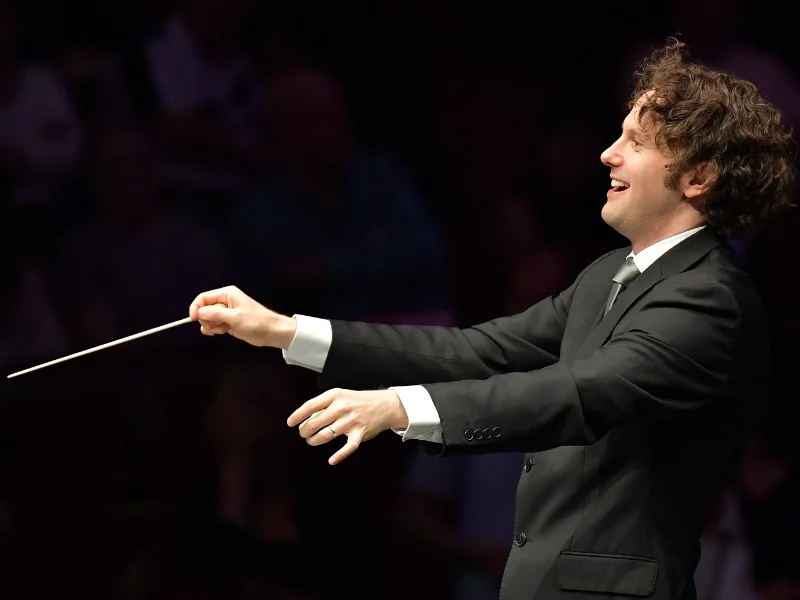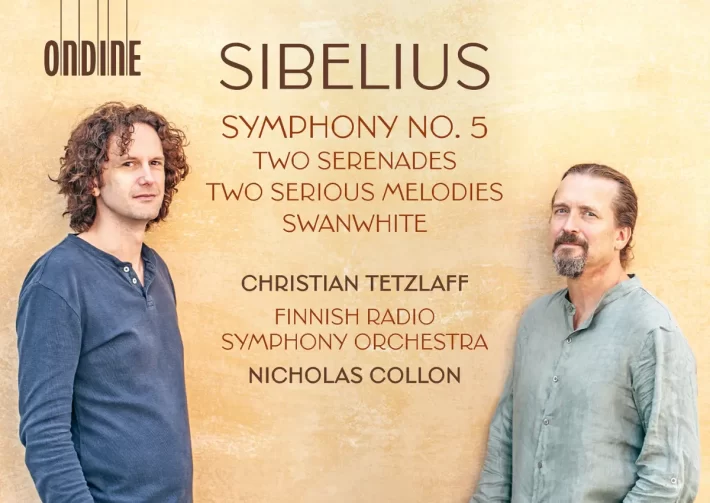This is the second release in a slowly evolving Sibelius cycle by Nicholas Collon and the Finnish Radio Symphony Orchestra. The first album, released in 2022, features the seventh symphony, Pelléas Et Mélisande, and the King Christian II. Ondine currently has only one other cycle in their catalogue, Leif Segerstam and the Helsinki Philharmonic, almost two decades ago. The orchestra is featured in two other readily available cycles: the first led by Jukka-Pekka Saraste (RCA, released as a budget box set by Sony in 2020), the second led by Hannu Lintu to celebrate the 150th anniversary of Sibelius’s birth (Video/Arthaus Musik).

Collon’s accounts of the symphony is very good, perhaps the best played of the three, but not without few issues. The opening movement’s tempo accelerations are well gauged, leading to an exciting conclusion. The tempo for the second movement is just right, though the atmosphere is off. Yet both here and in the final movement, there is an unexpected warmth at odds with the music. Part of the reason is a lack of heft in the sound. Performances by Davis (Boston/Philips), Berglund (Bournemouth/Warner Classics), and Storgårds (BBC Philharmonic/Chandos), to name just three, all feature greater weight and ripeness. The sound here is lithe which suits the interpretation, but I am unconvinced this is what Sibelius intends. While it is undeniably one of the composer’s happier symphonies (especially compared to its immediate predecessor) the best readings, such as Karajan’s two Berlin readings (DG and Warner Classics), as well as Blomstedt’s powerful performance from San Francisco (Decca) conjure an icier, brooding Nordic atmosphere that is eventually transfigured in the final movement’s Coda.
Additionally, there are several moments throughout this performance clarity of inner detail works against the music by drawing the listener’s attention to secondary material. It is as if we are allowed to see the internal mechanisms of a watch, and in doing so we lose track of time. A similar interpretative approach appears, to greater or lesser extent, in the Sibelius cycles by Mäkelä (Oslo Philharmonic Orchestra/Decca – review) and Rouvali (Gothenburg Symphony Orchestra/Alpha – review). While it is a distinct pleasure to hear so much of the score, it should not be at the expense of the main melodic figures or the intended mood.
Late last year I reviewed sweetly spun readings of the ‘Two Earnest Melodies’ and ‘Serenades’ by James Ehnes (Gardner/Bergen/Chandos). Christian Tetzlaff‘s interpretations are more ‘heart-on-sleeve,’ with greater flexibility of pulse and more imaginative articulation he draws from his violin. Both interpretative profiles work in this music: the Cantique (Earnest Melody No. 1) becomes a little too saccharine in Tetzlaff’s hands, but Dévotion plums deeper emotional depths than Ehnes finds.
The Op. 69 Serenades were written around the same time as the fourth and fifth symphonies and inhabit the same atmosphere (a shrewd programming by Collon and company). Tetzlaff’s readings are again more demonstrative, and his quicker rendition of the G-minor Serenade makes Ehnes’s rendition seem plain spoken and emotionally reserved.

Nicholas Collon (image: ©️ Chris Christodolou)
The ‘Swanwhite Suite’ has been recorded a handful of times: Neeme Järvi’s Gothenburg reading (BIS) is typically energic, unsubtle and brusque. Petri Sakari’s recording with the Iceland Symphony (Chandos) lacks energy, with detail sometimes muddied by an overly reverberant recording. Osmo Vänskä’s Lahti Symphony Orchestra performance (BIS) is excellent, and Collon’s similarly paced performance is just as fine. Segerstam’s Turku Philharmonic Orchestra album of the complete incidental music (Naxos) is unfortunately marred by his lugubrious tempos.
While excellent notes and engineering make this an attractive release, Collon’s reading of the symphony does not match or exceed the excellence of other recordings mentioned above. If asked to choose the best Finnish RSO recording, I would recommend the Lintu cycle which includes not only consistently fine readings of the symphonies but three informative documentaries.
There is much lesser-known Finnish repertoire that would benefit from the perceptive musicianship of Collon and his Finnish orchestra; I would love to see them record a new Erkki Melartin symphony cycle or the orchestral works of Toivo Kuula.
Recommended Comparisons (Symphony)
Lintu (DVD) | Makela | Karajan | Berglund

Album Details |
|
|---|---|
| Album name | Sibelius – Symphony No. 5 |
| Label | Ondine |
| Catalogue No. | ODE1468-2 |
| Artists | Christian Tetzlaff, Finnish Radio Symphony Orchestra, Nicholas Collon |


















